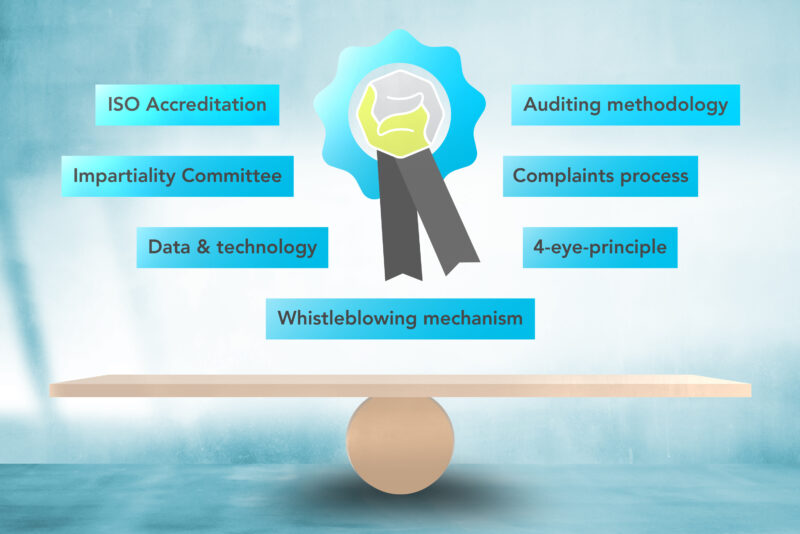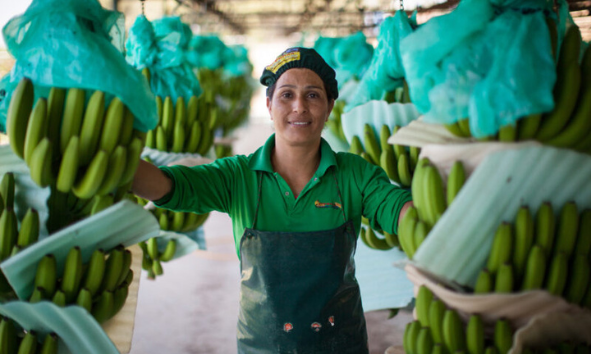How does FLOCERT ensure its impartiality: 3 questions to Jutta Goss
09.11.2021
Providing impartial services is vital for any credible assurance system. What does it mean to be impartial?
JG: Impartiality means that decisions are based on objective criteria, rather than on the basis of bias, prejudice or preferring the benefit of one party over another. Being impartial and being able to demonstrate to customers and the public that we are indeed making objective decisions is crucial for a certification body like FLOCERT to deliver services that provide confidence.
FLOCERT is conducting audits to assess the compliance of producers and traders with the Fairtrade standards and other ethical schemes. Who checks if FLOCERT’s audits and certification decisions are made independently and processes are transparent?
JG: Safeguarding impartiality is based on two main pillars: the ISO 17065 accreditation and FLOCERT’s internal processes. FLOCERT is accredited against the internationally acknowledged norm ISO 17065 which provides the normative basis for organisations that certify products, processes or services.
In order to receive this accreditation, all our offices are regularly and thoroughly audited by the German National Accreditation body DAkkS. The scope of these audits includes a review of our procedures, processes and sample cases as well as accompanying FLOCERT’s auditors in the field and during remote audits.
For our internal processes, we are equipped with a strong tool box. For starters, no decision is taken by one person alone. Every evaluation or certification decision is taken following the four-eyes principle. Our internal audit process includes a systematic impartiality check. We review audit planning, history of non-conformities, the plausibility of auditor findings and any type of potential conflict of interest. Last, but not least, our complaints system allows FLOCERT’s customers to raise their voices when they feel treated unfairly. We carefully investigate any information we receive in these cases and they are reviewed by experts with no previous involvement in the specific case.
How are potential threats to FLOCERT’s impartiality identified and what happens then?
JG: We have a risk matrix and according to it a group of experts from different departments identifies on a regular basis the risks to impartiality, as well as their severity and frequency. Examples of risks are: pressure on auditors before and during audits, pressure on certification decisions within a supply chain, conflicts of interests in Fairtrade‘s governance structure and impact of financial interests. Moreover, we encourage anyone (employee, community member or any other person) to report any threat to impartiality directly or anonymously through a whistle blowing system. All such indications will be documented in a log. This log also includes the follow-up actions to mitigate the risk and remedy violations, if occurred. Lastly, FLOCERT’s system to safeguard impartiality includes a dedicated Impartiality Committee which oversees all activities and can instruct our staff and leadership team. Different Fairtrade stakeholders are represented in the Impartiality Committee in a balanced manner, so that no single interest can be dominating.
A three-party relationship – the …
Learn more about the audits carried out by FLOCERT auditors.
FLOCERT, a …
If a …



